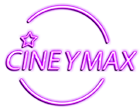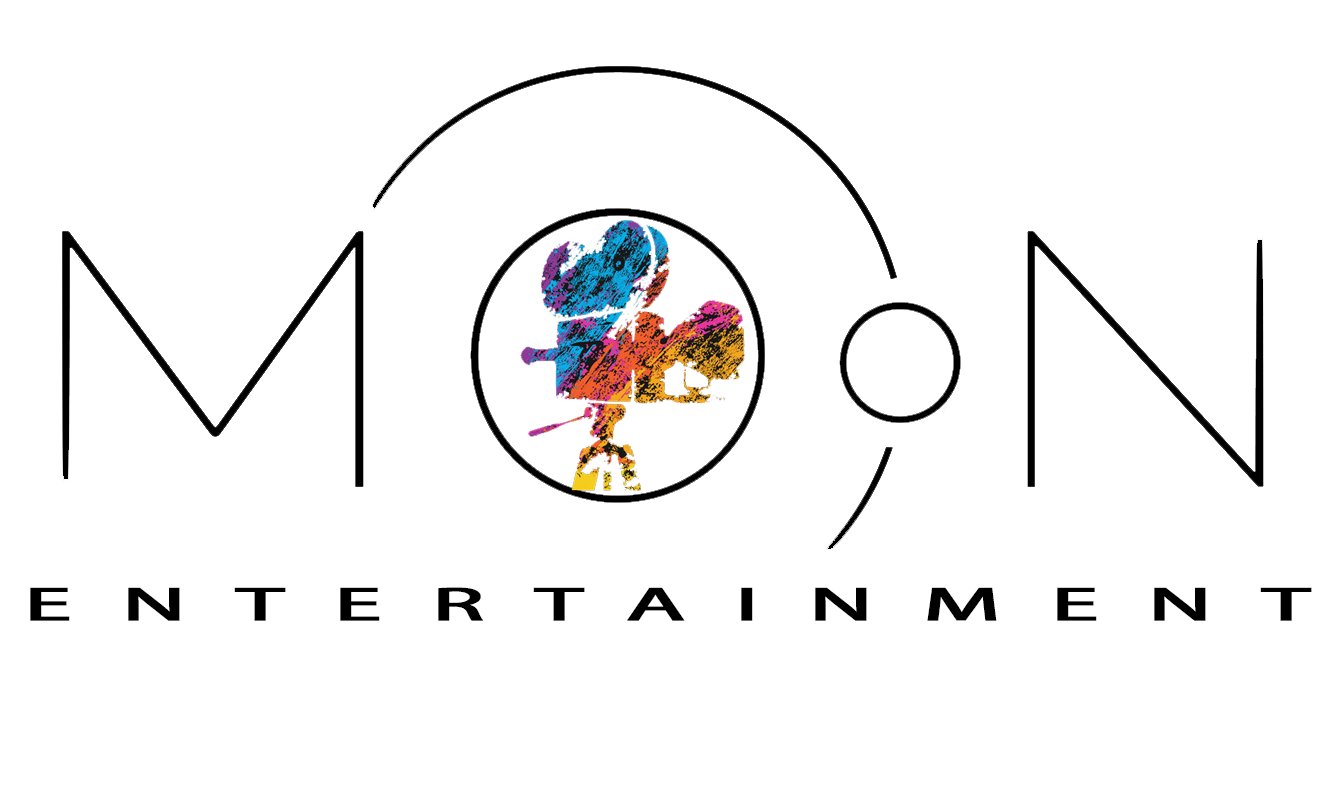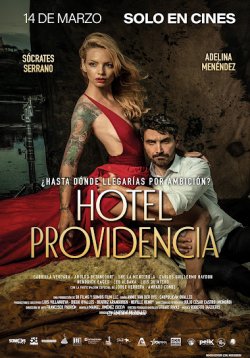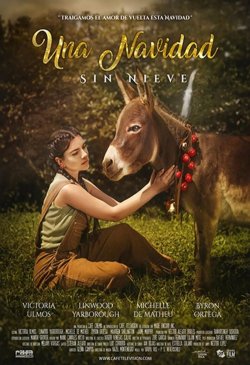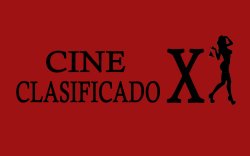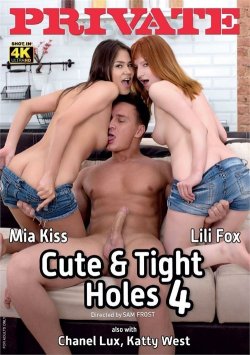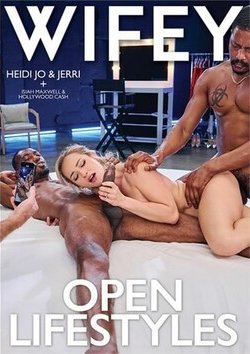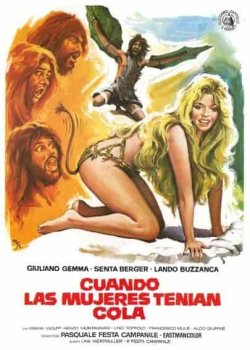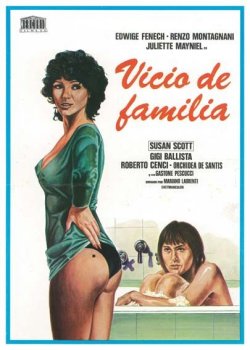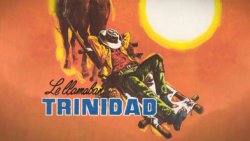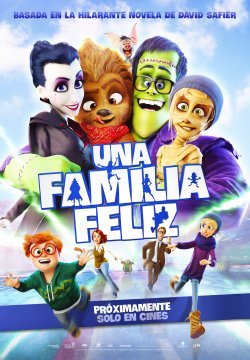 |
|
SINOPSIS
Los Wishbone no son una familia feliz. En un intento por conectarse uno de los miembros planea una divertida velada nocturna pero el plan falla cuando una bruja los maldice y todos se convierten en monstruos...
INTÉRPRETES
Animación
MÁS INFORMACIÓN DE INTERÉS
![]() BANDA SONORA
BANDA SONORA
![]() CÓMO SE HIZO
CÓMO SE HIZO
![]() VIDEO ENTREVISTAS
VIDEO ENTREVISTAS
![]() AUDIOS
AUDIOS
![]() PREMIERE
PREMIERE
![]() SECUELAS Happy family 2 (2020)
SECUELAS Happy family 2 (2020)
 INFORMACIÓN EXCLUSIVA
INFORMACIÓN EXCLUSIVA
DON’T WORRY, BE HAPPY...
"Happy Family" is an adaptation of the bestselling novel of the same name by Emmy® Award winning author David Safier ("Berlin, Berlin"). In Germany alone, "Happy Family", the novel has sold 500,000 copies. Internationally, it was translated into 18 languages and released in more than 40 countries.
Producer and director Holger Tappe ("Animals United") says: "I was looking for an author and approached David Safier, who had made his name writing the scripts for the TV series "Berlin, Berlin" (becoming a bestselling novelist was only the second stage in his career). He gave me an advance copy of his novel "Happy Family" to read, and we both quickly realized that the story was an ideal blueprint for an animated movie. However, David writes for a more adult audience (70% are female readers, aged between 14 and 50 years). We both agreed that the story needed to be reimagined so as to be suitable for children. For example, the novel has erotic scenes, which would have been inappropriate in the film. At the same time, we took great care not to change the underlying story so much that it would become unrecognisable to fans of the novel. Primarily, the film is meant to be fun - if an adult viewer realizes that this is about a dysfunctional family, who need to work through their issues, before reuniting in harmony, then this message is clearly part of the script. But not in a didactic way - on the face of it, it is a funny story about reluctant heroes, who, due to some obnoxious magic performed on them, experience hair-raising adventures on a journey around the world."
German satirist Oliver Kalkofe (and in the German version, the voice of Butler Renfield) states: "What's so interesting about "Happy Family" is that on the one hand, the story is easy to identify with. Anyone who grew up in a family, or knows a family, or has one of his or her own, will readily understand what is going on here. A family, which should be happy, creates its own obstacles, and then also has to deal with some external calamities. It is therefore, at least temporarily, not so happy. It then needs to figure out what's really important, and why, come to think of it, there really never was a reason to be unhappy. Then there is a second layer here, of playing with monsters, which we all recognise from hundreds of films, and which, even though they retain a spooky touch, we can laugh about - children do not need to be afraid of them. I certainly think it's great, how I can make gentle fun of these creatures, which made me hide behind the sofa when I was a kid, and who at times also show their nice side in this."
"So we intend to reach children as a target group with this film," adds Holger Tappe, "but we are also guided by American animation, which traditionally offers great entertainment not just for kids, but also for their parents, who will, for example, recognize, and have fun with visual puns on 100 years of horror film history. It was the same with my previous film, "Animals United", where we introduced concepts of ecology and environmentalism, without ever distracting from the entertainment value. So, entertainment is paramount for us, but that doesn't mean that the story of "Happy Family" cannot make you think. We live in a demanding world, in which one's career, and looking out for oneself, dominates; and when we cannot realize our dreams, we project them onto our children. And if they don't toe the line in this regard, once puberty happens, entirely foreseeable conflicts ensue, which necessarily leads to explosive fights, because they do not fit in with our expectations of an ideal world."
FAMILY-FRIENDLY: FROM NOVEL TO FILM...
About the novel, Tappe says: "David Safier's book also concentrates on the humorous aspects of the story, and that's why the film is particularly suitable for family entertainment. No doubt we will not change the world with our film. But if some members of the audience end up leaving the cinema thinking simply that next week-end might be a good time for doing something together, as a family, then that's already quite something."
About the evolution of the project, the director has this to say: "David Safier suggested a collaboration with the writer Catharina Junk. Because he saw himself as too close to the story, this teamwork proved to be the ideal approach. Catharina delivered two drafts, which David also contributed to; he also participated in our script meetings and was at all times open to our input of ideas. David invested much more effort and time, than one could normally expect from an author, to decisively drive the project forwards."
Regarding the characters and plot, Tappe says: "All characters in the film already exist in the novel - except for Dracula's funny bat companions, the Batties, which we invented for the film. As in the novel, we focus on the lead characters Emma and Dracula, but we left out certain aspects of Emma's inner turmoil, to allow the other family members room to develop and "breathe". While the obvious chemistry between Dracula and Emma remains intact, the only remnant in the film of the erotic subplot is a fiery tango sequence. In any case, there comes a moment while conceptualizing the material, when we filmmakers have to stop relying on dialogue alone, and where instead we delve into action and slapstick inspired by the plot, when we give our animators, and their fertile imaginations, free rein. What they came up with was constantly discussed with David Safier at the project meetings - he remained an integral part of the film team up to the test screenings.
This collaboration worked so well, that Safier is already developing new ideas, and intends to continue working with Holger Tappe and his crew. The first result of these joint efforts can already be viewed at the "Europa Park", an extremely popular theme park in Rust, in Southern Germany. Since 2016, one can experience a "4D" Short Film there, for which David Safier developed something like a prequel to "Happy Family".
Because animated movies tend to be more costly than life-action ones, the team planned from the outset to create an English-language version of the film for international distribution. Accordingly it was decided early on to move the Berlin home (per the book) of the Wishbones to New York. Says Holger Tappe: " It's funny... we Germans might struggle to identify with a French or a British family, and vice versa. But nobody seems to mind identifying with an American one. So the European trip of the novel became the trans-Atlantic journey of a family of New Yorkers."
After a test phase in German, the animation was completely switched over to English dialogue, for which renowned British actors like Emily Watson, Jason Isaacs and Nick Frost were hired, who were encouraged to interpret their roles freely in the sound booth - the animation was then fitted to their voices. That means that English became the original language of the film.
ROAD TRIP: VISUALS AND PRODUCTION DESIGN...
Holger Tappe says about his work on the visuals: "To keep all our options open, we have produced the film in 3D and in the incredible 4k resolution (4000 x 2000 pixels), as well as in Dolby Atmos and Dolby Vision, because these are becoming the new standards for image and sound at the top end of film production. It is important to me that I can offer audiences the highest technical standards, even if at present not all cinemas can take advantage of them. That does not change the fact that we are primarily focused on the all-important job of good storytelling, but content and technology should work hand in hand. Silent movies disappeared, because, after all, our world is filled with sound, and colour film makes sense, too, as we do not see the world in black and white. By the same token, 3D is one of the dimensions in which we view the real world, and if filmmakers utilize this tool with care, then the screen simply dissolves into an experience of cinema."
About his concept for the characters, the director tells us: "From the outset, our Dracula was envisioned as a techno-nerd, because we filmmakers are also boys with toys. And because Emma is the main character to identify for female audiences, we needed a counter-point in the shape of her tinkerer son Max, as a role model for men. And in addition, Dracula got all sorts of technological gimmicks to play with."
Over a period of four days the filmmakers looked at original locations in Dracula's home of Transylvania in Romania -- including what the locals present to tourists as "Dracula's Castle". However, it's a known fact that this castle was simply picked by the Romanian tourist board as "most suitable". "The historical Dracula never lived there - with a bit of luck, he might have ridden past once," laughs Tappe. "But the castle is enthusiastically accepted and visited by Far Eastern fans. Anyway, we decided against it as our model, and designed Dracula's castle with gothic elements, but also modern design touches. Equally, his jet bears witness to his soft spot for technological gadgets. That means that while the classic Dracula, as depicted by Bela Lugosi or Christopher Lee, definitely still shines through, this has been interwoven with modern elements. And when I invite the members of my team to let their imagination run wild, they can make even better use of their amazing talents."
One example: When Dracula takes his "Lazarus bath", he is situated deep below the rocks of his giant castle, and in the background we can see the inside view of the waterfall, which roars down both sides of the cliff supporting the castle.
How does Tappe work with the animators? "The production design shows once again, how much filmmaking relies on team work. In this, I see myself more as a moderator, who keeps his eye on the big picture, while our talented artists can use their imagination, to add their inventive ideas to the overall mosaic of the film. This differs vastly from the process of making a life-action film, where the team works for an intense and stressful ten-week shooting period and needs to be driven on by the director. By contrast, on a film like "Happy Family" we work for a period of three years, and in a sense it's more like normal office routine. For this I liaise with the different departments, so that their joint creativity is targeted towards the common goal. My motto is - there are a thousand roads to Rome, and ten of them are equally fast. We don't have to take my way to get there. What counts is that the ideas along the way are good and funny. And that specifically applies to all the breath-taking and hilarious details that our team added to Dracula's castle."
But not all locations stem from the filmmakers' artistic imagination -- the film also features real and universally known places, like New York and London. Tappe states: "Based on our original concept, the film would have been more than two hours long -- for timing reasons we had to forego a few nice sequences, for example a wild chase from London's Heathrow Airport to the city centre. For this, the process was equally creative, but nevertheless quite different - we carefully checked out the actual locations, to see what the real streets and buildings look like, to place the wacky events in a perfectly realistic environment. And of course the same goes for all the London scenes that did make it into the finished film. I'm convinced that audiences in London or New York would have minded, had we taken too many liberties with the scenes we set in their respective hometowns."
Fortunately right from the earliest phases of production, there was intense quality control of Tappe's work: "My children are my harshest critics. One example: While immersed in work, we completely missed the fact that between two scenes there had been a costume change for father Frank. Until my son saw a draft version of the film and said: 'Dad, that's not OK, that Frank is suddenly wearing his suit again.' Of course he was right and we managed to fix this continuity error in time. That's another reason why I find test screenings so helpful, because audiences view our film with fresh eyes, while we get blind to certain things after having been immersed in the film for three years."
DESERT SOUNDS FOR THE SAHARA: THE MUSIC...
Due to his experience from half a dozen animated movies, director Holger Tappe knows: "For me, sound is 50% of the cinema experience - so we take great care with sound and music. Our composer Hendrick Schwarzer is an up-and-coming talent - "Happy Family" is his first feature film soundtrack, but he has nevertheless already made a name for himself in Hollywood, because he has collated a vast sample library, which is enthusiastically used by filmmakers there. So he is already well acquainted with Hans Zimmer and his peers and does orchestrations for them. He loves large orchestras and is a major Disney fan. That was a good combination for our short "prequel" for the Europa Park. That collaboration worked out so well, that we decided to entrust him with our feature film. And in his score he loves to - in line with the visuals - build in little nods to famous scores, including, with a wink, to "Lawrence of Arabia" in the Sahara sequence."
HAPPY END...
"'Happy Family' is a film that spreads good cheer -- even though, thanks to me, it has its grisly moments, ha ha ha!", laughs popular German comedian Hape Karkeling (the voice of Dracula in the German version), his voice tinged with suitable horror timbre.
And satirist Oliver Kalkoven (Renfield, in the German version) concludes: "I'm a major fan of animated movies. I've grown up with cartoons - they were my first cinema experiences. So incredibly much is possible in them, but not just visually. What really excites me, is that so much can be done with the content, how many gags, how many ideas, how much fine characterization can be included in comparison to life action films. I can watch these films a hundred times, because there is always something new to discover. The opportunities are endless, because everything in the film is created from scratch, unlike life action."
And specifically about "Happy Family": "That's the great achievement, which only very few films manage to achieve - that it is funny on many levels. So the kids laugh, the adults laugh, no one is bored. And if adults want to see the film, they take a couple of children with them, so that no one looks at them sideways. And everyone enjoys themselves. That's fantastic. I wholeheartedly recommend it to everyone. Everyone, that is, who has a family, who would like to have a family, who would like to have a different family, who is very happy with their family (but wants to see how life might be different), also all fans of creature features, fans of good comedies, fans of good animation. That adds up to a lot - everyone will be well entertained."
ABOUT THE AREA OF TENSION BETWEEN NOVEL AND SCREENPLAY:
I always wanted to write novels. When, aged 17, I came across the novel "The Hitchhiker’s Guide to the Galaxy" I knew, ten pages in, "That's what I want to write one day". I first became a journalist, later a screenwriter, and fortunately I had some success in these fields. After I won the "Emmy" with the TV series "Berlin, Berlin", a publisher enquired whether I felt like writing a novel. My response: "Good of you to call - that's what I've been wanting to do since I was 17."
As a novelist - once my books were adapted for the screen - I returned to screenwriting. For example, following "Happy Family", there will be a feature film version of "Berlin, Berlin".
The requirements of a screenplay differ greatly from that of a novel. Firstly, in a novel I can take more liberties, because the page of a book always costs the same. It's different with a screenplay - a lot depends on whether I describe a scene, where two characters have a cup of coffee, or if I add that just then the world ends and dinosaurs wander into frame. That might add increase the cost of the film just a little...
Secondly, the freedom in writing novels also consists of the fact, that it's not a collaborative effort - it's just between the author and the reader. My imagination connects with that of the reader, and the finished product materializes in his or her head. A lot more people are involved in making a film - the actors, the director, and the financiers. The latter understandably have a say, when they invest millions in such a project. In the case of "Happy Family", we had such wonderful teamwork, because we realized that we all shared the same vision. But such a way of working could in theory also be quite frustrating.
Thirdly, the risk in screenwriting stems from the fact that many projects end up gathering dust in a drawer, because the finance cannot be raised. That's why I prefer to write novels, because they do happen and they do reach their audience! Looking back, I've spent about three years of my life writing for projects that never materialized. That's why I am very cautious about potential screenplays.
ABOUT THE FANTASTICAL ELEMENTS IN "HAPPY FAMILY"...
I love fantastical stories, but my books always cover themes, that relate directly to my readers and viewers. Conceptually, I therefore usually start with the supernatural element, but then I work on the emotional truth.
With "Happy Family", it was the other way round - I started off with the issues within the family. I myself am a father of two children - all the conflicts of stress in the family, puberty and so on, were familiar to me from personal experience. But of course I did not want to write a docudrama, so I was pondering what might happen to this family. Such ideas often gestate over months, and eventually I hit on the idea that the Wishbones might be transformed into something else. I had the inspiration that they might mutate into monsters. They are more suitable than super-heroes (which otherwise I really appreciate), because heroes usually succeed at once, but I first wanted to send the Wishbones off to an exciting adventure. Monsters make for a nice mixture - they, too, have super powers, but they are horror creatures, and naturally the Wishbones want to overcome this involuntary condition, and return to normality. But they can't succeed without emotional advancement, which will stand them in good stead when dealing with their future lives.
As a child, I loved watching all the classic creature features -- the "Frankenstein" movies, Bela Lugosi as "Dracula", "The Mummy" with Boris Karloff. Later I encountered other permutations - I became very fond of Marvel Comic's "Frankenstein" adaptation, or their "Tomb of Dracula" series, and that way I further internalized these mythical horrors. Only as an adult did I find out who had written the original novels - and they continue to excite me. This love of the original classics is a necessary condition for my novels - without them, I would turn into a cynic.
ABOUT WORKING WITH THE "HAPPY FAMILY" FILM TEAM...
When I first met producer and director Holger Tappe, we discussed what the novel "Happy Family" is about -- what strains are there on families? How does one manage to lead a happy family life? Holger totally "got" all this. He focused on the same things I did - big adventure, fun, but also the emotional truth ... the decisive factors: heart, adventure, truth and humour.
We were in total agreement. But I did not want to write the screenplay on my own, because I did not feel I had the necessary distance. I've known the author Catharina Junk for more than 20 years - I asked her to handle the screen adaptation, because I thought it was important to look at the existing story from a different angle. Of course in the novel I focus on certain things which are important to me. But that does not necessarily mean that they really are important. Others might be able to judge that more objectively. As the second author, Catharina delivers a measure of control. I went through the various elements of her screenplay, and one joke in particular made me laugh out loud. I immediately called her and congratulated her on the idea. Her response: "Yup. And it was straight from your novel." Which just goes to show that I did not fully recall my own book, and might have placed a different significance on these scenes.
Then there came the practical experience with Holger Tappe's team, which I thought was amazing, and a great gift - the company produces animation of the highest quality. For me as a German author, it is a great honour to be allowed to participate in such a project. That's because from this production company flows a steady stream of ideas full of unbridled imagination, which on my own I could never come up with: Character design, look, movement. Despite my participation in the script team, I could only marvel and rejoice at all the surprising ideas for the implementation of the story, which the designers and animators contributed. It was like having won the lottery! How much nicer it is, when a wonderful film emerges from all this work, which totally captures the essence of my novel. Another important aspect is the human angle -- I am experiencing Holger Tappe as a pleasant and fair partner in this cooperation. One more reason why he is one of the top producers in the industry.
 GALERÍA DE FOTOS
GALERÍA DE FOTOS
https://cineymax.es/estrenos/fichas/107-h/115673-happy-family-una-familia-feliz-2017#sigProIda50f68a48e
